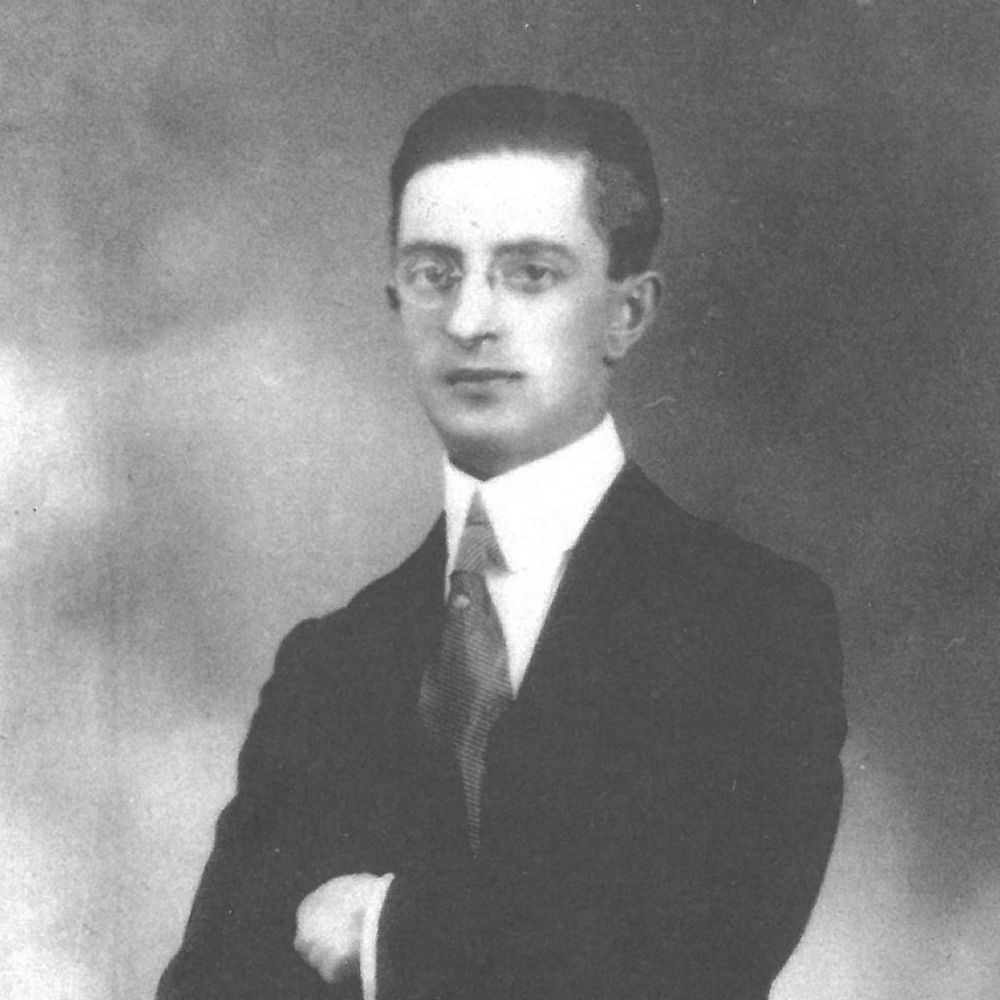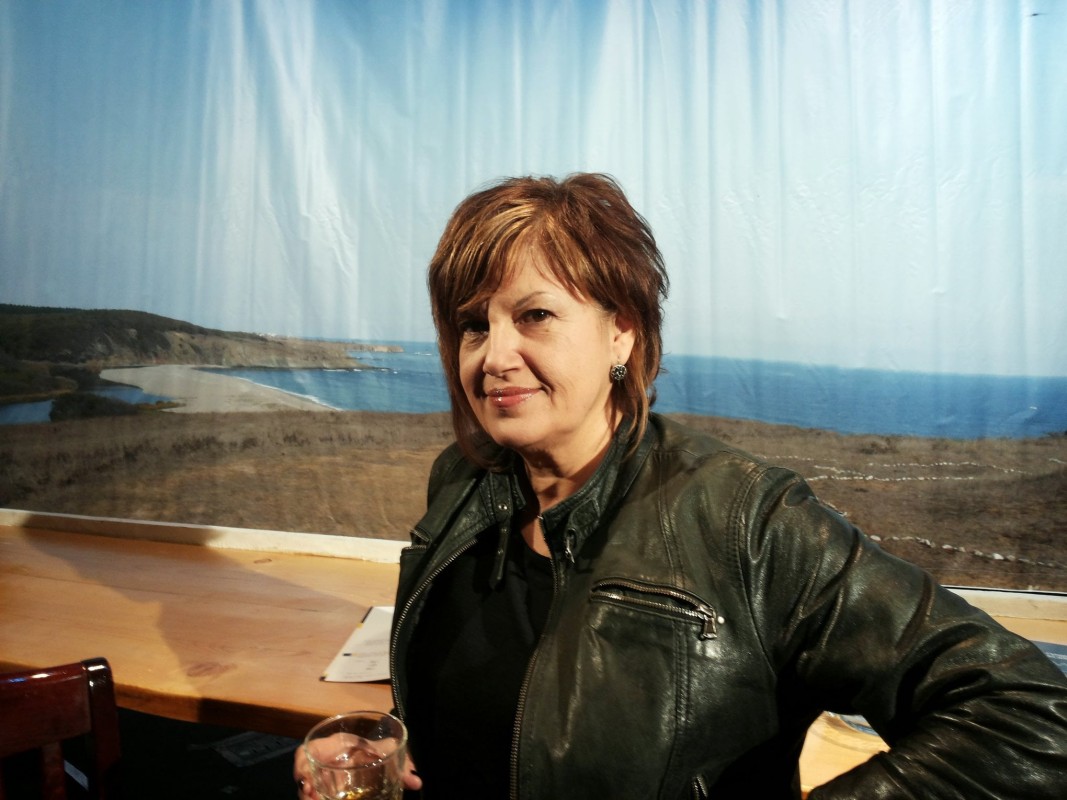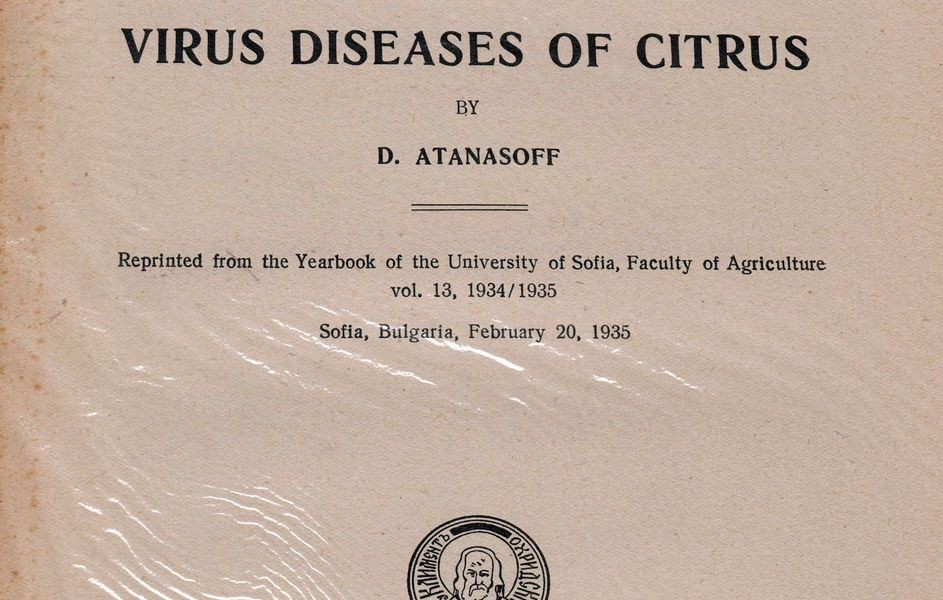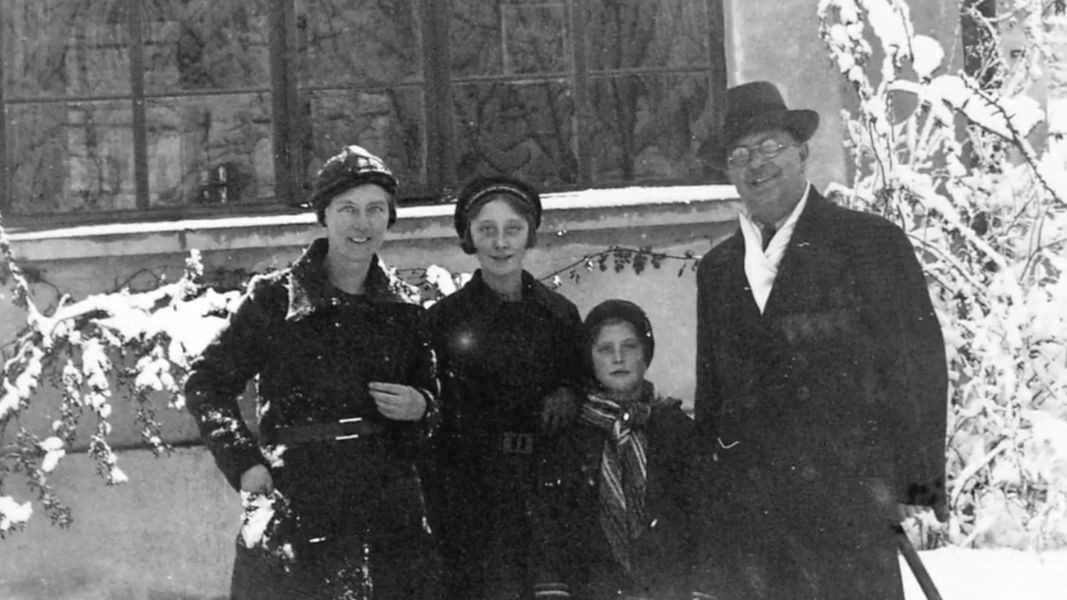And there is no road, no train. Me - a lonely pebble, standing and grasping the tiny blade of grass ripped to the root – this verse from Boris Hristov’s poem Heartstroke gives the title frame of a film story. The plot takes us back to Bulgaria's past and its forgotten history, reminding that there are eternal values like education, which is a bridge to the future of humanity.
The 39th Apollonia Arts Festival in Sozopol screened the documentary film "Ripped to the Root" at the end of August. The latest film-project of Antoaneta Bachurova and Vladimir Lyutskanov is a dramatic narrative about important historical events, the consequences of which Bulgarians are still experiencing in the new century, but which are not often mentioned or talked about. The storyline is about the life of the remarkable scientist prof. Dimitar Atanasov Strigachev - an American graduate with a contribution to world science, founder of Bulgarian plant pathology and founder of the Agronomy Faculty of Sofia University.
The Bulgarian, born in the village of Gramada, Vidin region, was the first Bulgarian agronomist to graduate from graduate from the College of Agriculture & Natural Resources at Michigan State University, East Lansing. He graduated at 23 with honors, taking 4 years for two.
This paved the way to his research work in the Department of Plant Pathology at the University of Wisconsin, where he made fundamental discoveries in the field of plant diseases. In 1918-19, as a result of a research project of his own, he received his Ph.D. and was appointed associate professor at the university, thus automatically becoming an American citizen. For the next two years he specialized at the Biological Institute for Agriculture and Forestry in Berlin, and then worked for another four years at the Institute of Phytopathological Research in Wageningen, the Netherlands, where he met his wife.
In 1925 Prof. Atanasov and his family returned to Bulgaria, where he was invited to become associate professor and the first lecturer in plant pathology at the Faculty of Agronomy of St. Kliment Ohridski University in Sofia. Over the next six months he managed to obtain a grant from the Rockefeller Foundation to complete the Faculty of Agronomy (today's building of the Faculty of Biology of Sofia University "St. Kliment Ohridski" next to the building of the Bulgarian National Radio).
The screenwriter and co-director of the documentary Antoaneta Bachurova notes with regret that today hardly any of the students at this faculty know who Prof. Atanasov was.
"Prof. Atanasov is one of the many Bulgarians who are almost forgotten, despite their enormous contribution to rebuilding the country in those notorious first 30 years of the last century. Bulgaria, barely recovered from the national catastrophe after World War I, began to attract back all its sons sent to study abroad. They all returned to build their homeland. The fate of prof. Atanasov, unfortunately, is similar to that of many of the country's intellectual, artistic, economic and political elite, who were killed or mentally destroyed in 1944-45 when the communist regime came to power. That part of the history that has remained unknown to us is in fact the explanation of many things that happen to us today," Antoaneta Bachurova explained for BNR’s "Artefir" programme.
Prof. Dimitar Atanasov is the author of the first textbook on phytopathology in the Balkans, which has been translated into Romanian and Serbian. He also trained the first specialists in this field in the Balkans. He studied viral plant diseases and published over 100 scientific papers in the field of plant pathology. As Minister of Agriculture in the cabinet of Georgi Koseivanov (between November 1935 and July 1936), prof. Atanasov introduced the first Environmental Protection Act on the Canadian model and gave the Vitosha Mountains the status of a national park.
After the coup in 1945, he was declared a fascist because of his links with America and Western Europe, he was dismissed as Dean of the Faculty of Agronomy in Sofia, his family was exiled to Pleven and subjected to political repression. Dimitar Atanasov died on 14 July 1979 in Sofia.
"Today, the living history of these Bulgarians are their children," Bachurova says. At the center of "Ripped to the Root" is the professor's daughter - Elena Atanasova, who is no longer with us. Throughout her life, Elena has dreamt of people learning the truth about her father. Her biographical book When We Are No Longer Silent is at the heart of the film's script. Breaking the conventions of the history documentary filmmaking, the story is told in an emotional, personal and touching way so that it resonates with the viewers, says Antoaneta Bachurova.
The documentary narratives of Elena herself, are fleshed out in her absence, and her youth is brought to life through reenactments featuring two young actresses. "After watching the ready-made film, these two girls, children of the 21st century, were amazed by what they saw and confessed that they had not known this country in our recent history," Bachurova says. 
She is convinced that something must be done at the level of the education system in the country. This unknown part of history should be included in the history books. Children should know the truth about our past, Antoaneta Bachurova is adamant.
And linking history with culture, Antoaneta Bachurova chose a verse by the Bulgarian poet Boris Hristov for the title of the film. "I liked him as an image of our hero because there was a moment in history when the botanical garden near the Sofia village of Mramor, which he voluntarily took care of and donated the harvest to various farms throughout Bulgaria, was destroyed, ripped to the root. Having been declared a fascist for his links to the Western world - we are talking about a horrific level of primitivism - this garden was not just confiscated by the state, it was completely uprooted and destroyed. Of course, in more metaphorical terms, it is Bulgaria that has been ripped away from us. No blame has been sought or spoken of for what has happened all these years," says the author.
Photos: VIP MEDIA Film, Facebook /Antoaneta Bachurova
Translated and posted by Elizabeth Radkova
For the twenty-third year, the Bansko Film Fest team will take the audience to some of the most extreme corners of the world with 75 films from 39 countries . ''All of them are premieres, and for some of them, the screenings in Bansko will be..
The 38th edition of the Cinemania (Kinomania) Film Festival will kick off in Hall 1 of the National Palace of Culture in Sofia tonight, November 13. The cinematic panorama opens with the newest feature film by director Milko Lazarov, Tarika ,..
The 38th edition of Cinemania ( Kinomania ) starts in Hall 1 of the National Palace of Culture in Sofia. The festival opens on November 13 with a premiere of the film "Tarika". After its successes around the world and the completely..
The sculpture “Sand Nativity in Burgas”, which artists Paul and Remy Hoggard are sculpting in the center of Burgas in front of the..

+359 2 9336 661
